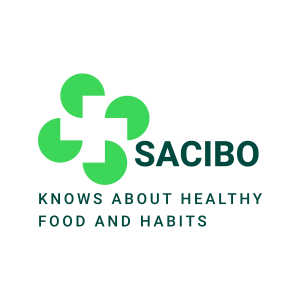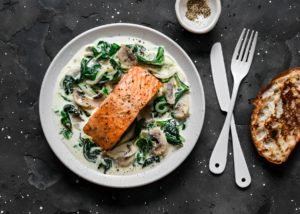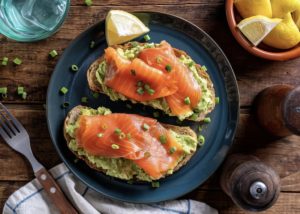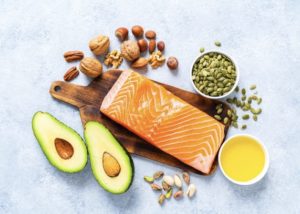- Home
- /
- Healthy Meal
- /
- Healthy meal today
- /
- Breakfast in Healthy Eating
- /
- Breakfast in Healthy Eating
Breakfast, a term derived from the combination of “break” and “fast,” refers to the first meal of the day, typically consumed after an overnight period of fasting. This essential meal has garnered much attention due to its significant impact on overall health and well-being. In this article, we will explore the significance of breakfast, delve into its diverse dietary choices, and examine the theories surrounding its importance and effects on our daily lives.
The Meaning of Breakfast in Healthy Eating
Breakfast is commonly understood as the meal taken to break the fasting period between dinner the previous night and the first meal of the day. It provides the body with essential nutrients and energy required to kickstart the morning and maintain optimal functioning throughout the day. The timing and composition of breakfast may vary across cultures and individual preferences, but its fundamental role in nourishing the body remains universal.
The History of Breakfast
In the beginning
The concept of breakfast has evolved over centuries, shaped by cultural practices, religious beliefs, and economic factors. In ancient civilizations, breakfast wasn’t a formalized meal as we know it today. Instead, people often ate leftovers from the previous night’s dinner or indulged in small, quick bites to break their overnight fast. In ancient Egypt, for instance, people consumed a simple meal of bread and beer as their morning sustenance.
Ancient Greece
As civilizations progressed, breakfast customs became more diverse. In ancient Greece, a typical breakfast might have consisted of bread, olives, and figs. The Romans introduced the idea of a more substantial breakfast, including meat, fish, and eggs. However, the concept of three distinct meals was not widespread until the Middle Ages when European societies began to embrace breakfast as a formal meal.
Middle Ages
During the Middle Ages, breakfast was primarily a meal for the wealthy and elite, while the lower classes often had to wait until mid-morning to have their first meal. This divide persisted until the Industrial Revolution, which brought about significant changes in breakfast habits. As people moved to cities and started working fixed hours, breakfast became a more structured meal, and it gained recognition as an important aspect of daily life.
The 19th century
By the 19th century, breakfast underwent a transformation with the emergence of various breakfast cereals, including cornflakes and granola. These convenient and ready-to-eat options revolutionized breakfast, making it more accessible to people of all social classes. As the Western world modernized, breakfast quickly became an integral part of daily routines, with many societies placing a strong emphasis on the nutritional value of the morning meal.
The Theories Impacting Breakfast
Numerous theories have emerged over the years regarding the significance of breakfast and its effects on human health and well-being. Let’s explore some of the prominent ones:
1. Metabolic Boost Theory
This theory suggests that eating breakfast kickstarts the metabolism, leading to better calorie burning throughout the day. However, recent research has shown mixed results, with some studies supporting this claim while others indicate that the timing of meals might not significantly affect metabolism in the long term.
2. Cognitive Function Theory
Breakfast is believed to enhance cognitive function and concentration, particularly in children and adolescents. Nutrient-rich breakfasts have been linked to improved memory, attention span, and academic performance.
About Mind Diet read here: The MIND Diet: Nourishing Your Brain for Optimal Health
3. Weight Management Theory
One popular belief is that eating breakfast aids in weight management by preventing overeating later in the day and regulating appetite. However, evidence on the direct relationship between breakfast consumption and weight loss remains inconclusive.
4. Fasting and Circadian Rhythm Theory
Some intermittent fasting proponents argue that skipping breakfast may align better with the body’s natural circadian rhythm, potentially promoting better health outcomes and weight regulation. Nevertheless, individual responses to intermittent fasting can vary significantly.
The Geographical Differences in Breakfast
Geographical and cultural variations play a significant role in shaping breakfast choices around the world. Let’s explore some of the unique breakfast traditions in different regions:
North America
In the United States and Canada, breakfast often consists of a hearty meal with eggs, bacon or sausages, pancakes or waffles, and a variety of cereals. In some regions, breakfast burritos or bagels with cream cheese are also popular choices.
Europe
European breakfasts vary widely. In Western Europe, breakfast often includes bread or pastries with butter, jam, or cheese, accompanied by coffee or tea. In Southern Europe, a continental breakfast with croissants and coffee is common, while in the UK, a full English breakfast with eggs, bacon, sausages, beans, and toast is a traditional favorite.
Asia
Asian breakfasts reflect the diversity of the continent. In Japan, a traditional breakfast may consist of rice, miso soup, grilled fish, and pickled vegetables. In China, breakfast often includes congee (rice porridge) or steamed buns filled with meat or vegetables. In India, regional breakfast choices range from dosa (rice crepes) to parathas (flatbreads) served with various accompaniments.
Middle East
In the Middle East, breakfast often features a variety of spreads, such as hummus, labneh (strained yogurt), and olives, along with flatbreads like pita or lavash. It is also common to find eggs, tomatoes, and cucumbers as part of the morning meal.
Africa
In different parts of Africa, breakfast varies significantly. In North Africa, a popular choice is a dish called “ful medames,” made from fava beans, olive oil, and spices. In South Africa, “pap” (maize porridge) is a common breakfast, while in East Africa, “ugali” (maize meal) is a staple morning food.
About Rules of long-livers all over the world read here: 8 Secrets of Longevity and Well-being from Blue Zone Residents
The Nutritional Options for Healthy Breakfast
What we eat for breakfast significantly impacts our daily energy levels, cognitive function, and overall health. Some popular and nutritious breakfast options include:
1. Balanced Breakfast
A good breakfast includes a mix of carbohydrates, proteins, healthy fats, and vitamins. Whole-grain cereals, fruits, yogurt, and nuts are excellent choices to achieve this balance and sustain energy levels.
2. Protein-Packed Breakfast
Protein-rich meal, such as eggs, lean meats, or plant-based proteins like tofu, aid in muscle repair, increase satiety, and stabilize blood sugar levels.
3. Fruits and Smoothies
Fresh smoothies and fruits offer a burst of vitamins, minerals, and antioxidants, promoting good digestion and supporting the immune system.
4. Grains
Oats and other whole grains provide slow-release energy, making them ideal for maintaining steady blood sugar levels and preventing mid-morning energy crashes.
What factors affects on breakfast choice?
Plenty of factors
The type of breakfast one chooses is determined by a myriad of factors, reflecting the complexity of individual preferences and the dynamic interplay of cultural, socioeconomic, and lifestyle influences. Cultural norms and traditions heavily impact breakfast choices, as different societies have ingrained specific morning culinary practices over generations. For example, countries in Asia often lean towards savory breakfasts, while Western cultures tend to favor sweeter and heartier morning meals. Socioeconomic factors play a crucial role as well, with varying access to resources and income levels influencing the quality and diversity of breakfast options.
And even more
Additionally, lifestyle factors, such as time constraints, dietary restrictions, and health considerations, significantly impact breakfast decisions. For busy professionals, a quick and convenient breakfast on-the-go may be more suitable, while health-conscious individuals might opt for nutrient-dense and balanced choices. Ultimately, the type of breakfast one enjoys is a unique amalgamation of personal, cultural, economic, and lifestyle factors, shaping not only the first meal of the day but also the broader fabric of one’s daily life.
Genetics as a reason of choice
Recent research has shed light on the intriguing role of genetics in influencing breakfast preferences and eating habits. Our genes can play a significant part in how our taste buds perceive flavors, textures, and even our cravings for certain foods. Studies have identified specific genetic variants that are associated with a preference for sweet or savory tastes, as well as genes that influence our sensitivity to bitter flavors, like those found in some vegetables. These genetic factors can indirectly impact the type of breakfast we gravitate towards, as individuals with a genetic predisposition for a heightened sweet taste sensitivity may be more likely to enjoy sugary breakfast options, while those with a preference for savory tastes might lean towards protein-rich morning meals.
What is more, our genes can influence our metabolism and hunger-regulating hormones, affecting our appetite and food choices throughout the day, including breakfast. While genetics is just one piece of the intricate puzzle that shapes our breakfast preferences, it highlights the fascinating interplay between our biological makeup and the foods we choose to fuel ourselves each morning.
About connection between food and gene of overweight people ADBR2 read here: The gene of overweight people: The weight loss strategy
Conclusion
The history and diversity of breakfast showcase how this meal has been influenced by cultural practices, societal changes, and geographical factors over time. From ancient civilizations to the modern world, breakfast has evolved into a significant meal, impacting our physical and mental well-being. As we continue to explore and celebrate the various breakfast traditions worldwide, let us appreciate the unique flavors and customs that enrich this fundamental aspect of our daily lives.
Breakfast remains a crucial meal, providing our bodies with essential nutrients and energy to seize the day ahead. As we have explored various theories surrounding breakfast, it is essential to remember that individual preferences, lifestyles, and metabolic differences should guide our breakfast choices. Whether you opt for a balanced breakfast, protein-rich options, or follow an intermittent fasting routine, the key is to make healthy and mindful food choices that support your overall well-being. Remember, breakfast is not just a meal; it’s an opportunity to nourish and energize yourself for a successful day ahead.
































































0 Comments